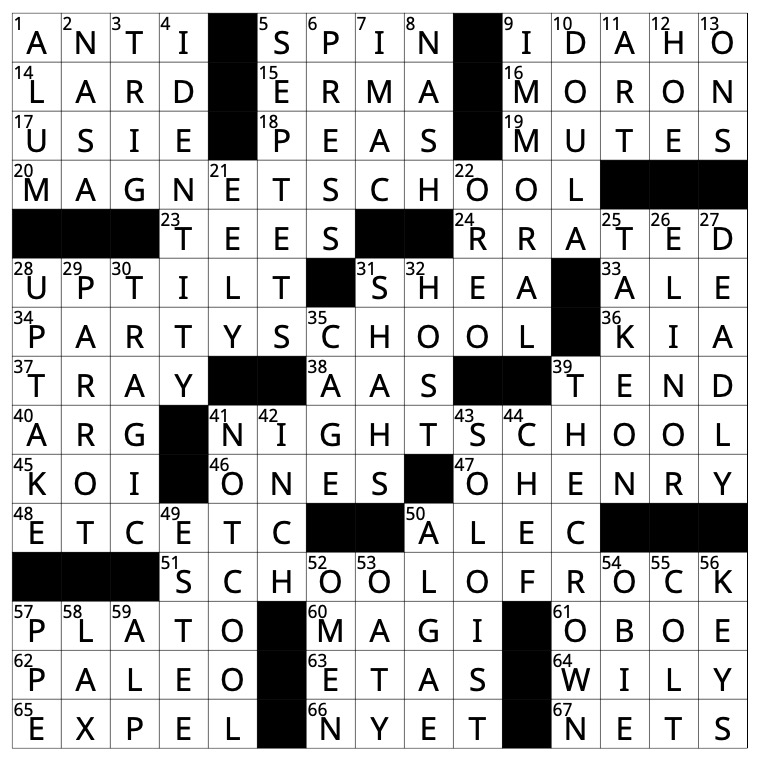After 158 submissions, one seven-hour marathon and months of work, the student directors and faculty advisers are ready to host 800 people at the ArcLight Cinerama Dome in Hollywood for the 10th annual Harvard-Westlake Film Festival this Friday.
Student directors Natalie Markiles ’13, Patric Verrone ’13 and Rebecca Moretti ’13 worked with Visual Arts Department Head Cheri Gaulke, Performing Arts teacher Ted Walch and photography teacher Kevin O’Malley since the fall to organize this year’s festival, which will feature Oscar-nominated director Alejandro González Iñárritu [Maria ’13] as keynote speaker.
Iñárritu was scheduled to speak at the festival two years ago, but cancelled at the last moment due to appendicitis.
Iñárritu, who will discuss his career in the film industry, is one in a long line of prominent keynote speakers, following DreamWorks CEO Stacey Snider, director Kathryn Bigelow and director Guillermo del Toro (Iñárritu’s 2011 replacement). His speech will precede the screening of 23 student films from 15 different schools and programs, including six films made by Harvard-Westlake students, although no preference is given to Harvard-Westlake submissions.
“A Harvard-Westlake film must make it based on its own merits,” Gaulke said. “At many school-produced film festivals one usually sees weaker films from the home school. But I am proud that in our festival the Harvard-Westlake work is always strong. Some years we may have only one film in the festival. This year we have more. That’s because our work is simply good. We get in a lot of other film festivals. We produce a lot of work that is varied and of a high quality.”
A committee of students and teachers as well as alumni and directors evaluate the submissions in a three-tiered process. Markiles said that each submission is graded blindly by at least three student committee members, a student director and a faculty adviser, with the highest scoring submissions moving on to the second round of judging, which was held as a seven-hour marathon at the house
of Catherine Davis ’13.
“At the screening, we have committee members, directors, teachers and teachers from schools other than Harvard-Westlake,” Markiles said. All of the movies get scored and discussed, and then we use those scores to determine what films will make it into the festival. It was interesting because after we watched them we went around the room and got to hear everyone’s opinions on the films. One thing we strive for in our festival is to have films that can be some people’s favorites and other people’s least favorites.”
Markiles’ fellow directors also attested to the diversity of the films after their marathon judging.
“We have films this year ranging from all different production values, walks of life, ideas, genres and even languages,” Moretti said.
“It’s difficult to say what exactly compels us to choose a particular film over another because film is such a diverse, versatile medium,” Verrone said. “We try to find films that showcase that kind of variety, while at the same time connect with people on both an emotional and an aesthetic level.”
A reel of the films is then sent to the festival’s judges, industry professionals who score the films blindly and determine the winners of the Lizzie Awards, named after festival founder Elizabeth Yale ’04.
The awards will be announced at the end of the festival to provide “a sense of anticipation,” Gaulke said, rather than in the program like previous years. Besides this, however, the proceedings will not change to celebrate the festival’s 10th anniversary.
The festival does not end with the event itself: on Saturday, an invitation-only event called simply “The Day After” will provide the student filmmakers and Video Art students the opportunity to engage in a Q&A with Iñárritu on their own films and attend workshops on screenwriting, acting, cinematography and the movie business taught by industry professionals. This year, the workshop teachers include Snider and festival judge, screenwriter and USC professor Janet Batchler [Cory ’13, Sabrina ’15].
“It was created by the festival directors two years ago, based on the kinds of events that other student festivals have hosted and we’ve been building on their ideas ever since,” Verrone said.































